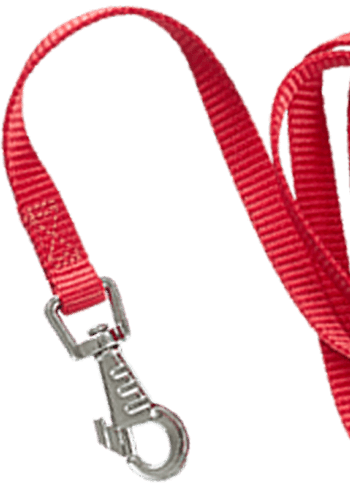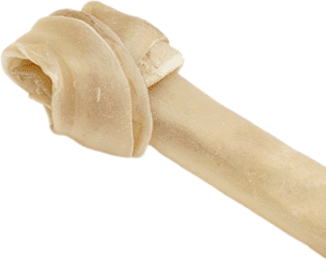


Did you know that burglary rates nationwide have reached 340.5 per 100,000 people? This means every 30 seconds, there’s a burglary occurring somewhere around the country and your home could be at risk next.
Although overall property crime rates have decreased in recent years, homeowners are increasingly turning to diverse security methods to protect their families. And one of the most classic strategies people rely on is to use family pets as watchdogs.
Welcoming a dog into the family can be about so much more than love and companionship. Well-trained guard dogs can keep your family safe and protect you from anything. But perhaps you’ve heard not all dog breeds make suitable watchdogs.
In other words, most dog owners think that the kind, gentle, and sweet temperament of Labradors won’t necessarily make a good watchdog. However, with a little training, obedience classes, and positive reinforcement, families can count on a Lab’s protective nature to make them an ideal watchdog.
In this article, you’ll learn whether Labrador retrievers good guard dogs and how consistent training along with their natural traits can help them in their new role as watchdogs.
Now may be a great time to think about adding a guard dog to your household. Despite the pandemic keeping us at home, major cities saw significant spikes in burglaries throughout 2020. New York City alone reported a 47% increase in burglaries in 2020 compared to the previous year.
Guard dog breeds will deter most home invaders and those who try their luck are unlikely to hurt you or your family if a guard dog is present.
Certain guard dog breeds have a natural advantage over others due to their breed’s temperament, traits, and natural behaviors.
According to the American Kennel Club, guard dogs can be vicious when they need to be, but that doesn’t mean they’ll show the same level of viciousness in daily life with their people. Many of the best guard dogs are incredibly playful and loyal to their owners.
The key characteristics of a guard dog include:
Opting for the most vicious dogs, such as Rottweilers and Pit Bulls, isn’t necessary to protect your home.
You may find that there are restrictions on certain breeds in your local area anyway. Although there’s no Federal law on banned breeds, over 1,200 cities, towns, and villages have local laws on certain breeds.
Approximately three divisions of the U.S. military have also prohibited certain breeds in family housing areas, such as the Rottweiler and the Doberman pinscher. However, there are efforts to repeal these breed-specific bans.
Although Labs are excellent guide dogs, their naturally friendly temperament is not typically associated with home security.
Their patient nature, playfulness, and loving personality make many people automatically discount them as a home protection option. There’s no doubt that Labs are fantastic family dogs, applauded for their intelligence and loyalty.
However, these positive characteristics also make them a good guard dog breed. While Labradors may not be the ultimate guard dog, they do have potential when owners train them correctly.
The emphasis is on training and understanding aggression. Here’s what you need to know about what makes a good guard dog breed.
When asking, “Do Labradors make good guard dogs?” it’s important to look at whether they display appropriate protective behavior. After all, Labradors often feature as one of the calmest dog breeds around.
Here’s the truth: Regardless of their natural temperament, all dogs can display a level of protective behavior, especially when facing something they don’t know. However, these behaviors will never appear in a puppy of any breed because dogs at a young age need protection rather than being a protector.
Typically, protective behaviors surface during adolescence. At this point, your dog will reach social maturity and are well-poised to respond to a threat.
There are some myths regarding the gender of a good watchdog. Thus far, scientists have concluded there’s no evidence of any difference in protective behavior between a male and female watchdog.
The one exception is if a female is rearing a litter of puppies or a new puppy joins the household. Protective behaviors may suddenly surface as a new mom will want to protect her babies from unknown intruders or others who are foreign.
Part of determining an ideal candidate for a guard dog is understanding the differences in protective behaviors. All dogs display aggression either through protection or possession.
So when asking the question, “Are Labradors good guard dogs?” you need to determine what sort of aggression your dog displays.
Possessive aggression, also known as resource guarding, is when the dog reacts to a perceived infringement upon a resource it believes it requires for survival.
Dog trainer Patricia McConnell describes it as “any behavior that discourages another to take, or get too close to, an object or valued area in the dog’s possession.”
Some common items dogs display possessive aggression over include:
Possessive aggression is not an indicator of a good guard dog. Labs often display attributes of resource guarding, which is something to think about if buying a new puppy.
On the other hand, protective aggression is a dog defending what it perceives to be “one of its own.” Some dogs will display both, but a dog showing one type of aggression may not also display the other.
The truth is a Labrador who displays only possessive aggression may stand by and ignore a home invader as long as they don’t go near their favorite chew toy. This is how dangerous making these assumptions about different types of aggression can be.
You might be shocked to know that Labs are not hardwired to perform a guardianship role. This is why many don’t consider Labradors as strong candidates for a position in human protection. For example, you’ll always see a German shepherd as a police dog, but when was the last time you saw a Labrador in that role?
However, there’s some evidence to prove that Labradors make good guard dogs close to home. One Dutch study into the subject indicated that Labs are more likely to be protective of their home and belongings than the owner.
And that’s a good thing because excessive protection of their owner is one of the biggest behavioral problems experienced by dog owners. It can be extremely time-consuming and costly to untrain this behavior. That’s why Labs make good guard dogs when protecting their territory.
Labradors always display loyalty to their owner, the “pack leader.” Although many believe that Labs want to make friends with every stranger they come across, this is far from the truth. This breed easily adapts to the presence of strangers, but they often show distrust and nervousness in the beginning.
Their strong protective instincts are what keep Labradors in the running to perform as guard dogs.
Now that you know the difference between possessive and protective aggression, any training course’s goal should be to limit possessive aggression and encourage protective aggression.
Labradors require a certain amount of innovation to turn them into guard dogs as they are not the most traditional breeds for guard dog duty. Their innate trainability gives them an edge.
According to the American Kennel Club, the Labrador is “Another extremely popular dog; this gentle and versatile hunting breed is also a fast learner. Their outgoing nature and eager-to-please personality make them a preferred breed for service work.”
The key is to start young before puppies are allowed to form ingrained negative behaviors. Pamela Reid of the Animal Behavior Center says, “Puppies between 8-12 weeks make the best students because they haven’t formed bad habits.”
Even experienced owners underestimate how young a dog should be before it’s ready to be trained. Most owners don’t sign their pets up for classes until they are between 6-12 months old. This is too late, much of the time.
Since guard dogs play such a specific role in the household, Snowy Pines White Labs always recommends seeking out a professional, reputable trainer to instill the behaviors you want to see.
However, there are training tips you can implement at home to ensure your dog remains well-behaved. Positive reinforcement is the order of the day with these breeds, especially if you plan to make them watchful and wary of strangers rather than curious and friendly.
Labradors are energetic and eager-to-please, which means when they want to do things you like. All you need to do to harness these natural traits is to use rewards like a toy, a treat, or some playtime to reinforce the “right” behavior.
Ultimately, you can steer a Lab’s protective nature to act as a shield against the threat of intruders in and around your home. As a dog owner, it’s up to you to encourage your Labrador Retriever and work to change its behavior.
The reason why Labs often don’t perform well as guard dogs is a lack of ongoing training. Constant behavior proofing is necessary as Labradors are a breed that experiences prolonged adolescence. They continue to act like puppies long into adulthood, which means you need to be wary of any mischief.
Here are three options for behavior proofing your Labrador:
Your dog trainer will be able to provide you with an ongoing schedule to ensure your Labrador doesn’t unlearn the protective aggressive behaviors you want to see.
So, to bring out the inner watchdogs in Labs, you must constantly reinforce Labrador training and implement training tips throughout their lifespans.
It’s no secret that Labradors are the most popular of dogs in the U.S. today. But, does a Labrador Retriever have the right temperament to make a reliable watchdog? Yes, they do and they can definitely become a reliable watchdog against an intruder when trained correctly.
What you need to know is:
Labradors are most certainly not the best guard dog option available, but they are loyal, trainable, and are capable of getting nasty when necessary.
Contact Snowy Pines White Labs for more information on everything you need to know about teaching your new Labrador how to keep your family safe.